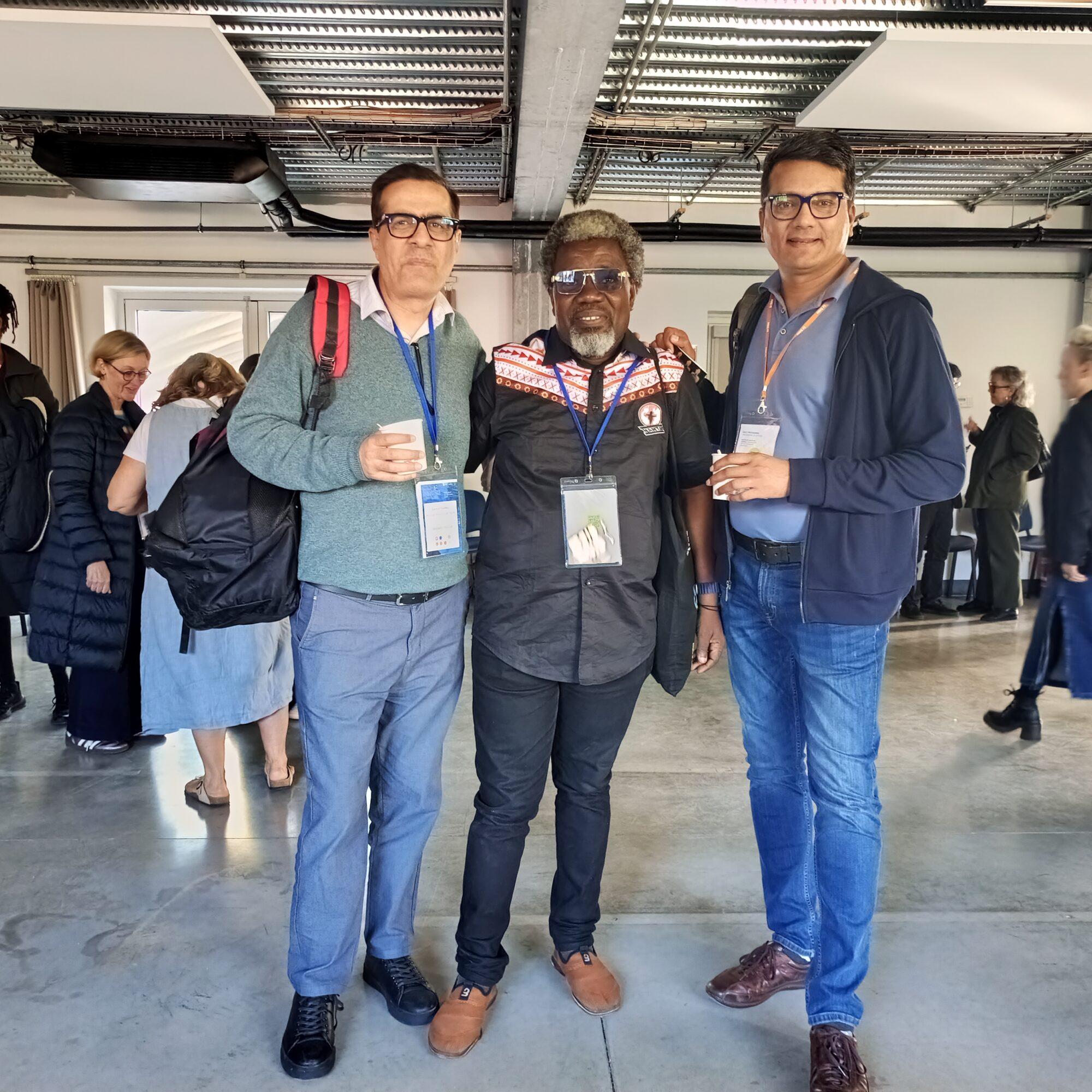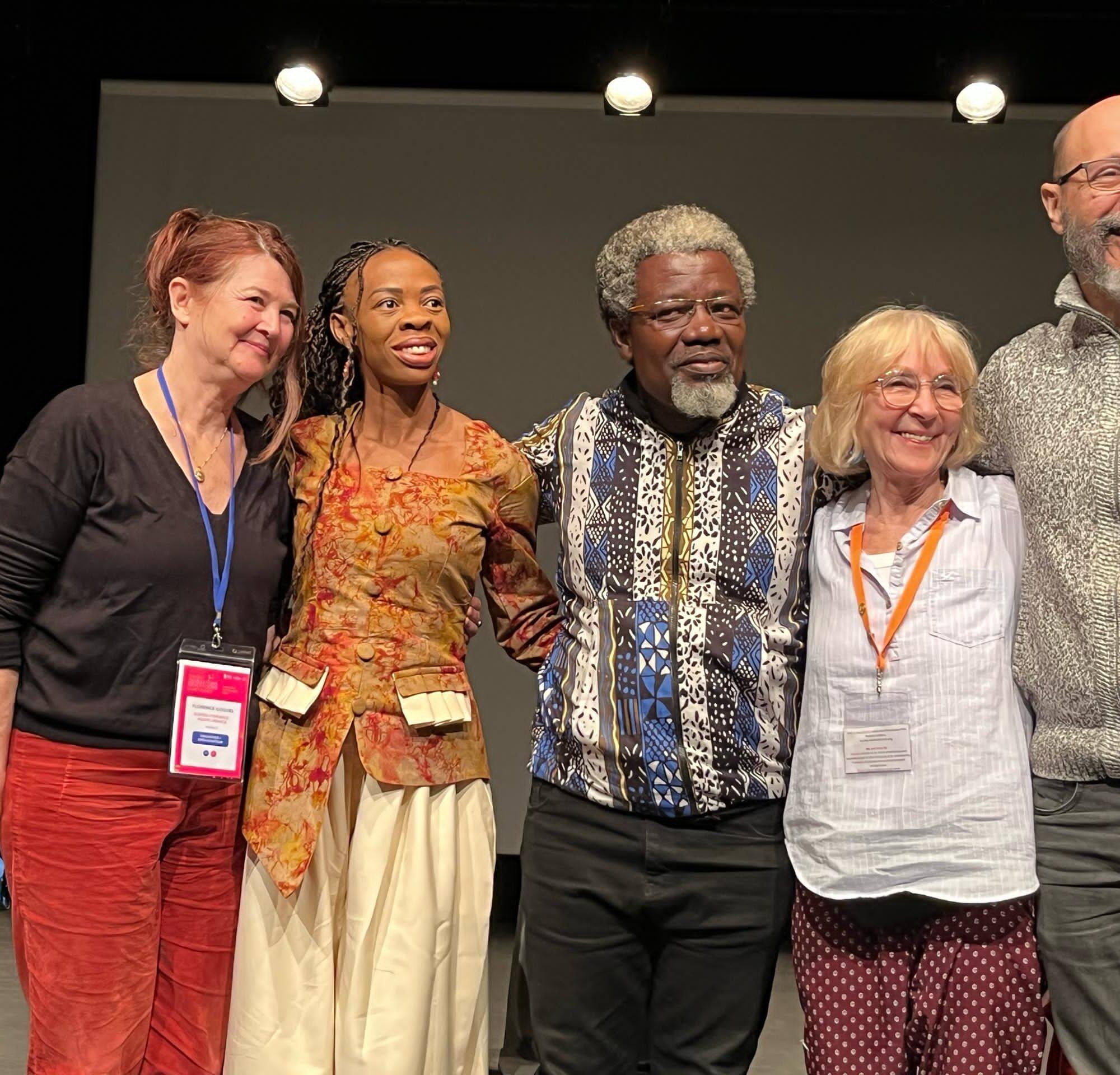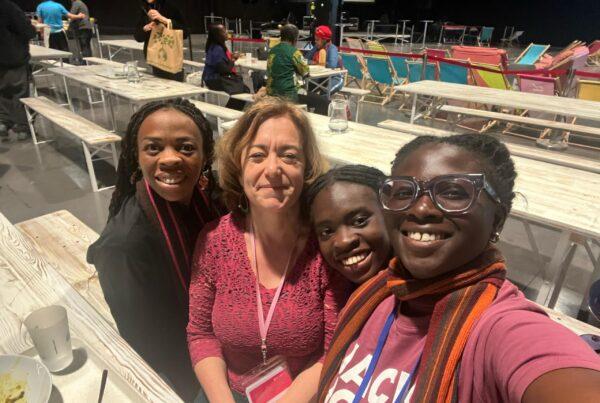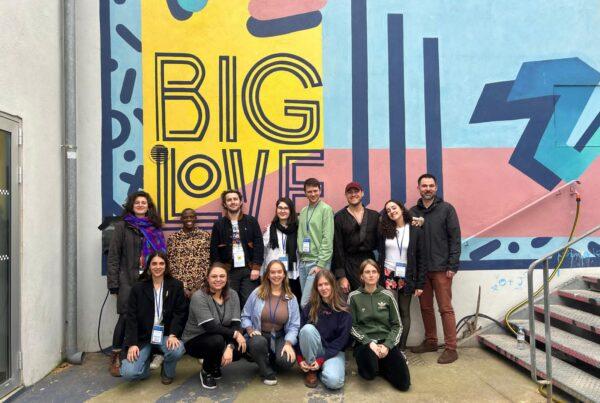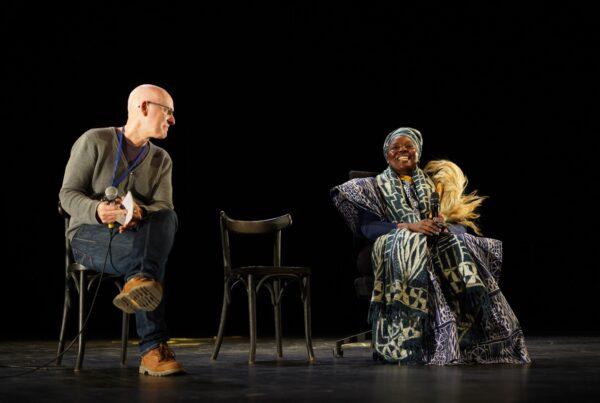By Jerry Adesewo
Before that all-important trip to the ASSITEJ Artistic Gathering in Marseille, France, poetry and I had fallen silent. My last attempt at poetic verses was nearly six months earlier, and I had begun to feel estranged from the very craft that once came so naturally. But at the departure lounge in Abuja, waiting for the flight that would carry me across continents, the lines began to return. By the time I landed in Marseille, I knew I had entered not only a new city but also a new season of writing.
What struck me most about Marseille was not just its layered history but the way it demanded to be recorded in fragments—images, rhythms, fleeting conversations. And so, as the ASSITEJ gathering unfolded, I found myself chronicling my experience in poems, each one a snapshot of place, people, and the quiet negotiations of identity.
Finding Breath in Community
The first poem, The Breath of Our Strength, emerged from the energy of the gathering itself, especially the network sessions, which brought all five networks of ASSITEJ together, for a brainstorming session to discuss the connectivity of the network. It was a reminder to me and all who will read it that art is not sustained in solitude but in community. “Not in silence, not in solitude,” the poem insists, “but in the weaving of voices.” Writing it felt like rediscovering my voice within the global family of theatre-makers who, like me, had come to Marseille with dreams of shaping brighter generations.
Between Ticket Gates and Glances
In ‘St. Charles to Chartreux’ I took the Marseille metro as a stage where migration, desire, and cultural collisions play out. Here, a kind stranger’s hand becomes an entry point not just past a stuck turnstile but into the city’s layered humanity. In the couple kissing near the door, the Algerian-French laughter, and the Nigerian aunty with her gele, I found echoes of Lagos chaos and resilience. The poem is my meditation on how cities mirror one another, even when continents apart.
Getting Lost, Finding Myself
In Marseille Map-Go-Round, I turned my disorientation into satire. I was the “Big Man from Abuja” reduced to a “dizzy pigeon circling La Plaine.” The poem’s humour masks a deeper truth: to be lost in a foreign land is to confront vulnerability, to admit that one’s power at home may mean little elsewhere. Yet, in finding my way through laughter and misdirections, I discovered kinship with the immigrant communities that have long made Marseille both chaotic and alive.
An Ode to the Port City
Om’Oba in Marseille was perhaps the most intimate poem of the series. I had to pen a love letter to the city. Marseille revealed itself to me as both rude and radiant, a queen draped in rebellion, salt, and sweat. The city became a mirror for my own dual identity: rooted in Yoruba heritage yet open to new cultural winds. Writing it, I understood that to visit Marseille, which I was visiting for the first time, is not just to tour but to wrestle with its contradictions until they become part of you.
Food, Faith, and Survival
Not all encounters were romantic. Culinary Exile in Marseille was born from the alienation of sitting before French delicacies that my Nigerian palate could not embrace. Bouillabaisse, croissants, and escargot felt like strangers, while I longed for amala, suya, and jollof. Yet, in the humour of fasting through Ramadan and Lent, I discovered a survival strategy: to turn deprivation into discipline, and longing into laughter.
Shared Diaspora Joys
With Downtown Marseille with Nana, the experience shifted from solitude to companionship. Walking through Noailles with a Ghanaian sister, the market transformed into a familiar place. The mingling of spices, the bursts of music, and Nana’s kente scarf made us visible, insistent presences in a city quick to forget black bodies. I capture in the poem, that rare joy of finding home in another African soul while abroad.
Capitalism with No Soul
Airports, too, became poems. In “Duty-Free, My Foot” I chose to satirise the absurdity of overpriced “luxuries” that lack the humanity of our noisy, bargaining Nigerian markets. Here, I realised how consumer spaces abroad can feel sterile, stripped of the warmth and improvisation that animate African marketplaces. It was a reminder that not all that glitters is gold—sometimes, it is simply exploitation with a polished smile.
Waiting as a National Condition
Finally, Seven Hours returns us to the universal frustration of flight delays, yet through a distinctly Nigerian lens. The poem equates the endless waiting at the airport with the patience Nigerians endure daily—whether in traffic, in queues, or in hope for better governance. By the time the flight finally boarded, I felt I had written not just about travel but about endurance as a cultural inheritance.
Threads of Memory
Together, these poems formed a tapestry of my Marseille journey. Each one, from the metro rides to the duty-free aisle, became a thread in a larger fabric of reflection. If the ASSITEJ gathering was about building brighter generations, then my poetry was about stitching together memory, so it does not unravel.
In Marseille, I remembered that poetry is not a luxury but a necessity—a way of naming the world so it does not vanish, a way of claiming dignity in the face of displacement, and above all, a way of celebrating friendship, community, and resilience.
As I left Marseille, I carried not just the lessons of the gathering but also the poems it had given back to me. They are my testament that even when silence stretches too long, the poet in me still waits, ready to be summoned by the press of a new city, the taste of unfamiliar food, or the kindness of a stranger’s hand at a metro gate.
And as I wrote in “Om’Oba in Marseille”, whether through ASSITEJ France or some other calling, I know I shall return—to Marseille, Lyon, Monaco, or Paris—to once again brighten the future. And when I do, my pen will still find its way to paper, scribbling new lines in your honour.


